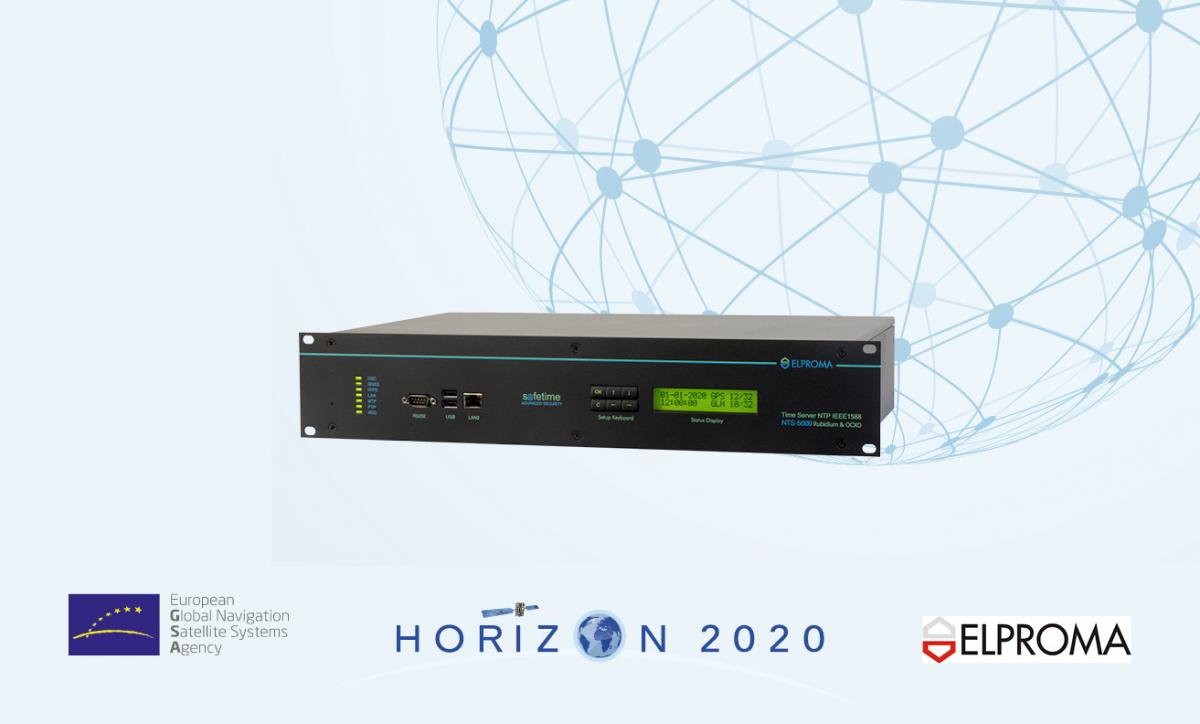ELPROMA, a Polish manufacturer of NTP/PTP time servers, has won a seven-figure US$ contract to supply Rubidium IEEE1588 NTS-5000 servers to support a country-scale modern smart grid system in Asia. The servers, which are custom built (designated “Safe Time”), incorporate a modified version of the cyber-security TSI#2 solution developed as part of the Horizon 2020 ‘DEMonstrator of EGNSS services based on Time Reference Architecture’ (Demetra) project, in which ELPROMA participated in 2015-2016.
While it is not yet possible, for reasons of commercial secrecy, to name the client country, we can reveal that the contract is for a total of over 350 mostly advanced Rubidium-class PTP IEEE1588 time servers. These servers will ensure the cyber security and robust nanosecond synchronisation of the country-scale electricity grid, which is in the process of transition from a classical grid to a state-of-the-art IEC61850 system capable of safely distributing power throughout the country.
Read this: Time as a service with Galileo
“This is the biggest one-off deal of its kind so far,” Tomasz Widomski, a member of the ELPROMA Supervisory Board, said. “For comparison, a stock exchange or a new 5G telecom network requires approximately 10-15 grandmaster PTP IEEE1588 servers to operate efficiently, so 350 is a really huge number of servers,” he said. Due to the server volume, the system requires a special management and monitoring facility to ensure the accuracy and time domain operation of the IEC61850 smart grid.
Nanosecond accuracy
The PTP servers will be customised according to the specific needs of the client to ensure reliable, country-scale synchronisation and time domain operation. The Demetra TSI#2 solution is a core element of the new smart grid, with a modified version of the solution implemented inside the NTS-5000 dual oscillator servers (Rubidium and OCXO), helping to ensure the delivery of nanosecond accuracy and top-level cyber security. The key is real-time auditing, which ensures that everything stays stable during power distribution management.
“ELPROMA is the first supplier in the world of this level of synchronisation and this size of system, which will be more and more popular once Industry 4.0 technology becomes a reality,” Widomski said, adding that Galileo accuracy is a key element for improving security. “The ELPROMA servers are multi-constellation and are able to select the GNSS system that they operate with, however Galileo is the preferred one, with GPS, BaiDou and Glonass as a backup,” he said.
Watch this: Demetra – Time as a Service
ELPROMA is currently in the process of delivering the servers to the client and these will be gradually deployed over the next two to three months. “It is expected that the system will be fully operational at the end of 2019,” Widomski said.
Demetra solution
ELPROMA was member of Demetra Horizon 2020 project (2015-2016), which developed a prototype of an EGNSS-based time disseminator that provides time certification, redundancy, resilience, integrity and improved accuracy, while validating the concept of ‘time as a service’.
The Demetra developers engaged with the main timing and synchronisation users, including energy companies, to ensure that their needs were incorporated into the project design. The demonstrator was built around the concept of a common core infrastructure hosting advanced time services. It was deployed as an open and scalable architecture with common interfaces, making it easier to integrate new services and enabling service developers to focus on performance at user level.
The ELPROMA contract is a good example of how EGNSS-based innovations, such as the solutions created by Demetra, are driving economic growth and job creation in Europe. “The servers are 100% manufactured in the EU, in Poland,” Widomski said.
Media note: This feature can be republished without charge provided the European GNSS Agency (GSA) is acknowledged as the source at the top or the bottom of the story. You must request permission before you use any of the photographs on the site. If you republish, we would be grateful if you could link back to the GSA website (http://www.gsa.europa.eu).
